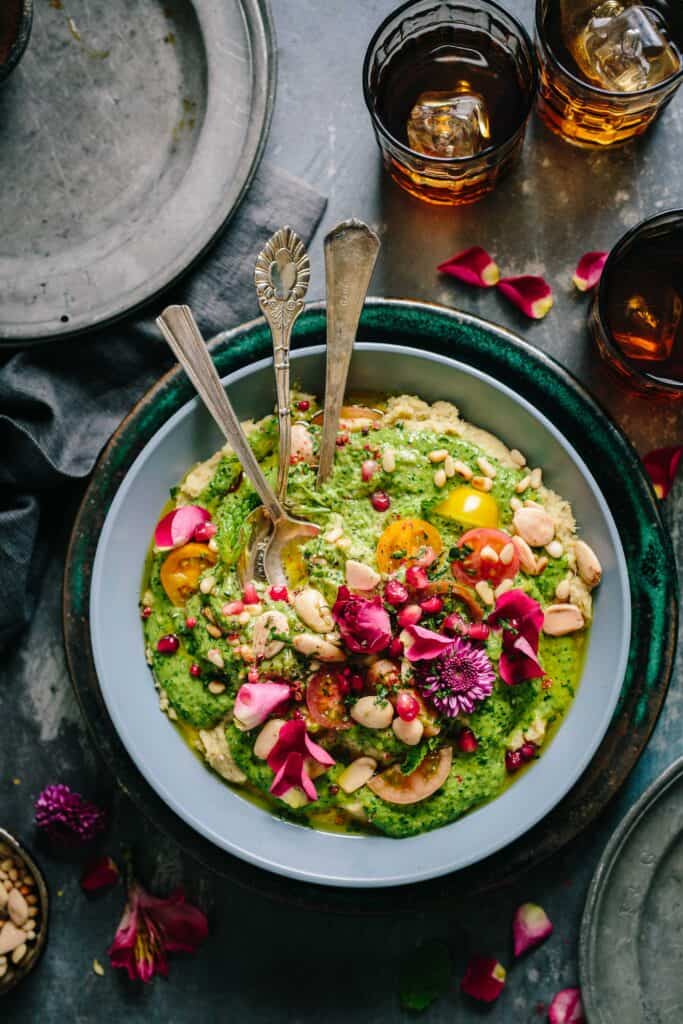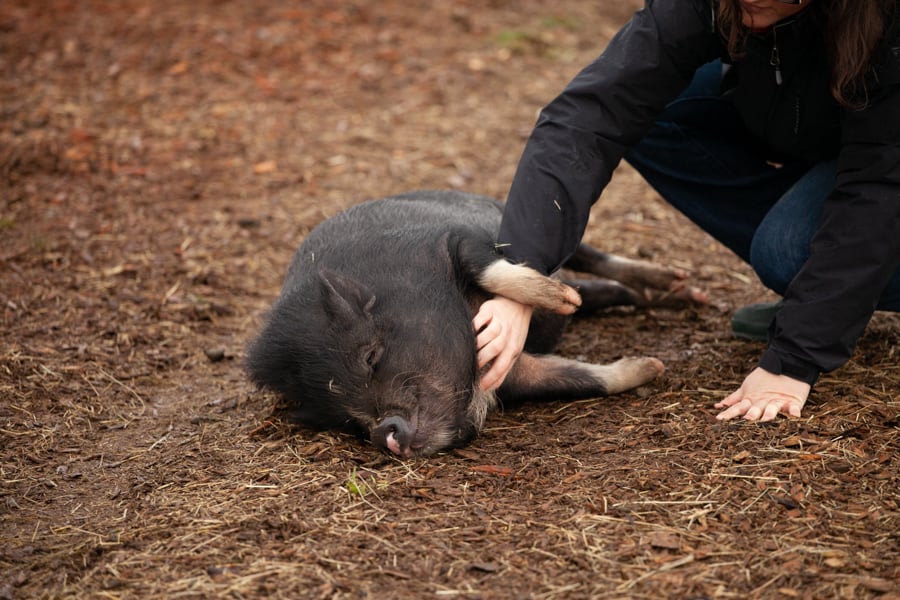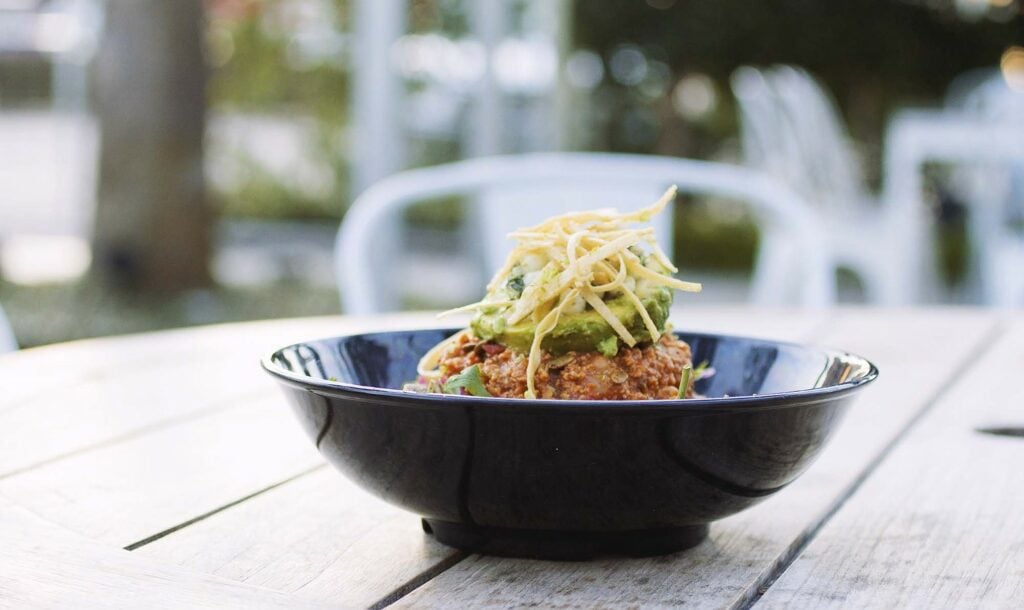Is yeast vegan? Since consuming yeast doesn’t harm it and involves no animal exploitation or abuse, it’s generally accepted as a vegan-friendly ingredient. But because it’s a living organism, a tiny fraction of folks may still avoid it.
So why do some people choose to avoid consuming yeast? After all, aren’t plants living organisms? Where’s the line?
This post explores the ethical nuances of yeast and why it causes some confusion in the vegan ethos.
What is yeast?
Yeast is a single-celled microorganism that has been used in the preparation of bread, beer, and wine for thousands of years.
Although it’s commonly referred to as a fungus, yeast is classified as a member of the kingdom Protista. Like all fungi, yeast is eukaryotic, meaning that it has a nucleus and other organelles enclosed within membranes.
Yeast cells are unique in that they can reproduce both sexually and asexually. When conditions are favourable, yeast cells will undergo budding, in which a new cell grows from an existing cell.
Under less ideal circumstances, yeast cells will fuse to form diploid cells and then go through meiosis to produce haploid spores. These spores can then germinate under the right conditions to create new yeast cells.
Due to its ability to reproduce rapidly and adapt to new environments, yeast is considered a living organism – which is why it raises some ethical concerns.
Why do some people believe yeast isn’t vegan?
While many people trust that yeast is suitable for vegans, there are arguments against this notion.
The main argument against using yeast in vegan cooking is that it’s alive and therefore not consistent with the principles of veganism.
Some believe that to be vegan, you must abstain from consuming any living organisms, including fungi and plants.
Read more: But Plants Have Feelings Too, Don’t They?
However, animals are very different from fungi and plants in their ability to experience pain and discomfort. Animals can feel pain and fear and don’t typically choose to be consumed by other organisms.
Additionally, many animals like cows, pigs, sheep, or chickens are explicitly farmed for human consumption.
By contrast, yeast and other fungi are simply biological byproducts of existing earlier organisms; they have no choice over whether to be consumed or used by humans, removing any ethical concerns around consuming them.
Therefore both fungi and plants serve essential roles in meeting the nutritional needs of vegans without compromising their moral values.
So, is yeast vegan or not?
Veganism is a lifestyle that seeks to exclude all forms of animal exploitation, including the consumption of meat, dairy, and other animal-derived resources.
Read more: Extending The Definition of Veganism
Despite being a living organism, yeast is regarded as okay for vegans to consume without worrying about violating their ethical principles.
As I explained earlier, this is because, unlike animals, which have their own cognitive abilities and can suffer from physical pain, yeast does not possess any of these qualities.
Furthermore, yeast isn’t killed during the fermentation process in which it’s commonly used. It feeds off of sugar and grows stronger as a result.
Therefore, when viewed within the context of veganism, there’s nothing inherently cruel about consuming yeast. Instead, it can be seen as an opportunity to support sustainable agriculture practices by providing food for an essential microorganism in the ecosystem.
The main issue here is that non-vegans tend to use yeast as an example to discredit veganism as a whole, but this argument is flawed for the reasons stated above.
So if you’re considering becoming a vegan or just want to know more about the lifestyle and dietary choices associated with it, be sure to include products made with yeast on your shopping list (examples below).
4 ways yeast is used in vegan-friendly foods
Yeast can be used in various ways to add flavour, texture, and leavening to food and beverages. Here are 4 common uses for yeast:
- Baking: When added to dough, yeast helps bread rise by producing carbon dioxide gas. The gas becomes trapped in the gluten network of the dough, leading to a lighter and airier final product.
- Brewing: Yeast is essential for brewing beer and wine (or kombucha). In beer brewing, yeast ferments the sugars present in malt to produce alcohol and carbon dioxide gas. In winemaking, yeast consumes the sugar in grape juice and converts it into alcohol.
- Leavening: When added to batters and dough, yeast produces carbon dioxide gas which causes them to expand and become lighter in texture. This is why yeast is often used in recipes for pancakes, waffles, and other similar dishes.
- Cheese: Nutritional yeast is often used as a cheese substitute in vegan recipes. When combined with other ingredients like cashews, lemon juice, and miso paste, it can create a spreadable, cheesy-tasting sauce that can be used in place of dairy-based cheeses.
Is yeast vegan? Final thoughts
So the answer to the question “is yeast vegan?” is a resounding yes. Not only is yeast vegan, but it’s also an essential source of nutrition for vegans and can be used in various ways to add flavour and texture to vegan dishes and beverages.
I hope this post has been helpful. Let me know what you think in the comments below.






Years ago, I saw a video that showed yeast under a microscope, basically – well, having yeast sex. The video above only reinforces my “qualms” about eating yeast or any foods made with yeast. I’m not suffering; I can live without bread products – I eat pasta and / or hot wheat cereals. I did like the taste and texture of nutritional yeast, but it’s just not worth worrying about. Maybe they don’t ‘feel pain’, etc. but I just don’t feel right eating them. I’m vegetarian since 1986 (I still had the occasional yogurt) and vegan since 2007 (I was still using non-dairy creamer, which I learned has casein, an animal-derived protein). I ditched that and now use a certain organic soy milk, which I love. Yeast will remaiin off-limits for me, for now.
PLEASE do not include my last name in my comment!! It says name is required, so I put my full name in – not knowing it would show up here. And there is no option to edit or delete.
Yeasts have … parents? Oh dear. I stopped eating nutritional yeast some years ago, when I saw a video that showed yeast under a microscope, basically – well, having yeast sex. The video above only reinforces my “qualms” about eating yeast or any foods made with yeast. I’m not suffering; I can live without bread products – I eat pasta and / or hot wheat cereals. I did like the taste and texture of nutritional yeast, but it’s just not worth worrying about. Maybe they don’t ‘feel pain’, etc. but I just don’t feel right eating them. I’m vegetarian since 1986 (I still had the occasional yogurt) and vegan since 2007 (I was still using non-dairy creamer, which I learned has casein, an animal-derived protein). I ditched that, and now use a certain organic soy milk, which I love. Yeast, however, will remain off-limits for me, for now.
Yeast does eat sugar during fermentation and “grows stronger”, though eventually, by the end of the fermentation, poisons itself with the alcohol in the container and dies. Often it is intentionally killed by using agents for stopping fermentation and stabilising wine for sweet wines or before bottling. Whether yeast is something vegans should care about or not is another matter.
Thank u so much for this thorough and detailed analysis! The origin of yeast has really created a contoversial issue in my head. Now everything is more clear for sure))
I know what you mean. I’m glad this has cleared up some things.